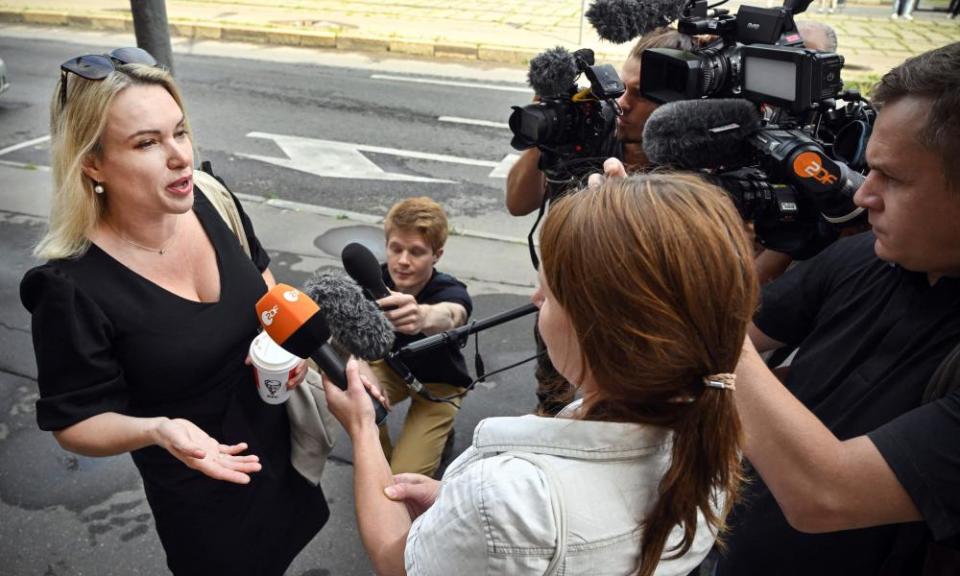To defeat Putin, we must support the brave Russian journalists telling the truth

Battlefield tanks are really only half the battle. Beyond military might on the ground in Ukraine, there is another critical confrontation in which the Kremlin has a superiority that must be challenged. The information war.
Russia’s media space has reverted to a grotesque parody of the Soviet-era model. (In fact, it’s far worse, as in the latter Soviet years at least, most people knew they were being fed lies). Television and the domestic press is utterly captured. Millions are fed a daily diet of Ukrainian “fascists”, western pederasts, and nuclear revenge on Anglo-Saxon civilisation.
It’s working. A broad consensus inside Russia still supports Putin and his wretched campaign in Ukraine. The Kremlin may be making a hash of the war on the ground, but it is winning the propaganda battle.
There is, however, a tiny minority of courageous journalists who are trying to make a difference, publishing independent, credible news for audiences back at home. It isn’t easy. They have been blocked, banned, bullied and banished from Russia. They have been condemned as foreign agents and “undesirables”, and their journalists, funders and readers have been threatened. They sit in exile, short of staff, advertisers and revenue. But not short of readers.
Independent news websites such as Meduza and Holod say they still reach millions of unique browsers in Russia, thanks to mirror websites, virtual private networks (VPNs) that can dodge the censors, and hard-to-block channels like email and Telegram.
I visited senior editors from both in Riga last week as part of a Guardian Foundation project to compare notes and offer advice on how to fund independent journalism. Meduza’s editor-in-chief, Galina Timchenko, told me it was like a game of cat and mouse: each time she came up with a new way of distributing news in Russia, the authorities shut it down. And yet Meduza still claimed about 2.5 million unique browsers monthly in Russia last year.
Related: Senior EU official calls for a ‘Radio Free Russia’ to help exiled media
Holod’s editor, Taisia Bekbulatova, said shoring up independent Russian journalism was a vital part of saving Russia from itself.
“Our goal is to preserve independent journalism for the future of Russia,” Bekbulatova told me. “Despite having to work in exile, we believe in the importance of high-quality journalism and the possibility of destroying a dictatorship. We want to be not just a media, but a true institution of independent journalism.”
For a western world agonising over how to make a difference in the Ukraine war, supporting journalists like this seems an obvious opportunity. In the same way that millions of readers have supported Guardian journalism over the years because they recognise the importance of independent media to the functioning of democracy, the same obtains in Russia.
We can help outfits like Meduza and Holod easily, for the fraction of the cost of a Leopard tank. The hope has to be that flourishing independent Russian news organisations might persuade ever greater numbers to question the Kremlin’s lies. Glasnost has impeccable form in this regard.
• Mark Rice-Oxley is the Guardian’s executive editor for supporters and a former Moscow correspondent
You can find out more here about supporting Holod and Meduza

 Yahoo Movies
Yahoo Movies 